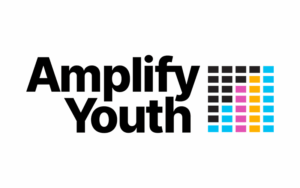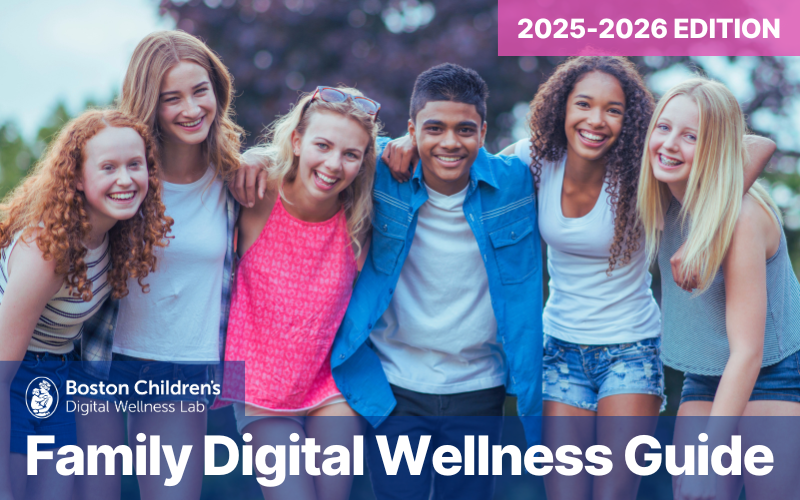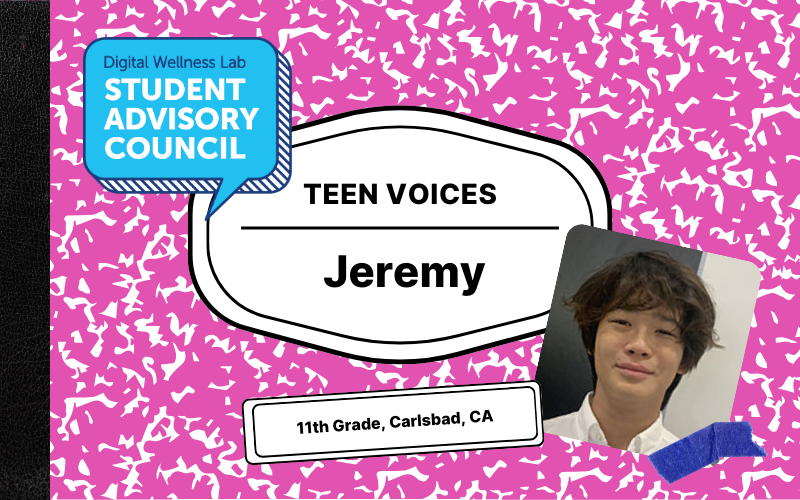Authored by Jeremy
Member of Digital Wellness Lab 2024-25 Student Advisory Council
What does a “day in the life” look like for you with using technology and digital media?
Technology is relevant in my life and finds its way to me no matter what the time is. For example:
- I start my day off almost immediately with my phone listening to Spotify while I get ready for school.
- My computer is prominent throughout the school day and afternoon. The bulk of my assigned classwork and homework is purely online through Schoology, a web-based Learning Management System.
- Once I get home, I’ll procrastinate a bit by surfing on Instagram.
- I use Google Maps when I drive to the gym.
- I have my earbuds in listening to Spotify for the hour or two I work out every night.
- I’ll check my email while brushing and use YouTube meditation to fall asleep if my mom loses the battle to take my laptop out of my bedroom.
From the moment I wake up to the time I go to bed I’m surrounded by technology. It definitely makes life a lot easier and simpler, though sometimes it serves as a massive distraction. Like that one time I spent 6 hours on Brawl Stars . . . .
What are your favorite platforms/apps and why?
I like Instagram because it is super easy to connect with people I’ve just met or close friends I haven’t seen for a while. I moved from Connecticut to California a few years ago and still talk to a ton of my friends on Instagram. I also watch Instagram reels. I get a lot of information from Instagram reels, though I’m not sure if that’s always a good thing.
Snapchat also is great for connecting with friends as it’s gratifying to see what my friends are doing on a day to day basis.
I watch too much YouTube, whether it’s educational or I’m just surfing the platform trying to find something that interests me. I like YouTube as it helps take my mind off of pressing matters (like the math test I have tomorrow that I should be studying for).
What are the greatest opportunities you see for teens when it comes to using technology?
The fact that such a large database of information is accessible to teens is a great opportunity. Teens are able to branch out and develop certain expertises, allowing them to amass loads of new skills.
Online platforms like Khan Academy and YouTube are widely used in my (and my peers’) daily life for help with homework. Though this may seem simple, it serves as a path to teach teens the required educational skills. This is a huge opportunity that wasn’t available 50 years ago.
The ability to connect with others is also a valuable opportunity that the internet offers. LinkedIn offers job opportunities and internships to teens around the world. When it comes time for college applications, technology makes the process swift and simple. Previously, typed applications were submitted to each college, making it hard to apply to multiple colleges at once. Now, it’s normal for people to apply to several colleges in a year.
Without technology, teens could miss out on opportunities. In a sense, technology doesn’t actually give one an opportunity, rather, without technology, you’re missing out. This is likely due to the frequent and constant support technology offers in our lives, forcing our communities to be somewhat dependent on technology.
What are the greatest challenges you see for teens when it comes to using technology?
When using technology, misinformation is prevalent no matter where you look. Though the internet is a great place for learning, it’s not entirely fact checked. Anybody can post anything on the internet, whether it’s correct or not.
With the way the algorithms work, sometimes you end up seeing the same content over and over again and so it becomes hard to get a balanced view on a subject. I have a friend whose grandmother was fed a bunch of conspiracy theories about 9/11 on YouTube and ended up genuinely believing one of them for a while, as that was all she saw on her feed.
This can contribute to widespread misinformation, which is not just a challenge but an actual tactic that can be used to hinder the accuracy of intelligence online.
What are the greatest opportunities you have and challenges you personally face when it comes to managing your technology use?
One opportunity I’ve received from the internet is to learn a new interest: weightlifting. Nobody in my family has ever been to the gym before, and when I wanted to start lifting I didn’t have anybody to turn to. The internet was a convenient place to learn literally everything about lifting, from form, to dieting, to workout splits. However, everyone in the fitness industry is ultimately trying to sell a product, and after a while there is a blurry line between what content is genuine and what information is fake.
Another challenge that I definitely experience is self control. I completely understand that surfing the internet and scrolling through Instagram reels is bad. I even asked my parents to set me a 30-minute time limit on my phone. It seems like free entertainment, but it actually costs your time, privacy, and sometimes sanity! I’ve had some days where I just sit in bed scrolling through reels, neglecting my daily responsibilities.
Sometimes, when I can’t get off Instagram, I delete my account. Yet I always end up making another account, or accessing Instagram on my computer instead. Even though I know that scrolling is horrible for me, sometimes I find it hard to stop.
What would you want to see changed or redesigned for technology and/or media to be healthier for teens?
Instagram has a limit (it’s not actually a limit, more like a gentle reminder) after one hour of use on a teen account. I heavily suggest all large social/digital media companies incorporate this feature into their app as well.
After the one-hour notification, every time you log into Instagram again, it gives a reminder on how much time you’ve already spent. I think this is a brilliant way to redesign media to become healthier for teens, as it forces them to take accountability of how much media they’ve consumed.
What, if anything, do you think parents and caregivers are missing when it comes to understanding how teens use media?
Teens can’t balance addictive media alone when they’re handed a cell phone. Even for adults, it’s difficult to just stop using any sort of digital media. It’s involved in every teen’s daily life and plays a large role in connecting with others.
Parents and caregivers need to understand digital media is a double-edged sword. It’s certainly debatable whether the internet results in a net negative or positive for teens. Parents have the right idea to limit media use, but they don’t always execute it effectively. Simply setting a time limit or not allowing your kid to play video games creates a desire to do exactly what they forbid. I, as a kid, found myself in this exact situation. It’s okay to expose your child to digital media. But teach them and help them acknowledge the consequences of overuse. It’s not about picking an extreme, it’s about developing a healthy relationship with your kid and the digital world.
What guidance or advice do you have for parents and other caregivers to help teens to build and maintain healthy behaviors around digital media and technology?
I view my relationship with digital media sort of similar to my relationship with snacking. Obviously, it’s not good to over-consume snacks. However, snacking once in a while, whether for comfort or whether to try something new, definitely is acceptable.
Of course, it’s extremely hard to stay off the screens, with not only how addictive they are, but also how crucial they are to our everyday lives. Almost the entirety of my schoolwork is required to be completed on my computer.
As long as you help your teen acknowledge this and set healthy limits for the nonessential parts of your technology use, I think it’s quite simple to maintain a balanced relationship with digital media.
I also highly recommend encouraging your teen to leave their phone in the kitchen or to do their homework in the same room as a parent/caregiver. By adding another perspective into the equation, it really encourages accountability in terms of technology use.
Jeremy is a member of the Digital Wellness Lab’s 2024-2025 Student Advisory Council. He is a high school junior in Carlsbad, California.
The author of this article is a young person who has been engaging with the Digital Wellness Lab about topics of young people’s safety and wellbeing within digital environments. Here at the Lab, we welcome different viewpoints and perspectives. However, the opinions and ideas expressed here do not necessarily represent the views, research, or recommendations of the Digital Wellness Lab, Boston Children’s Hospital, or affiliates.








